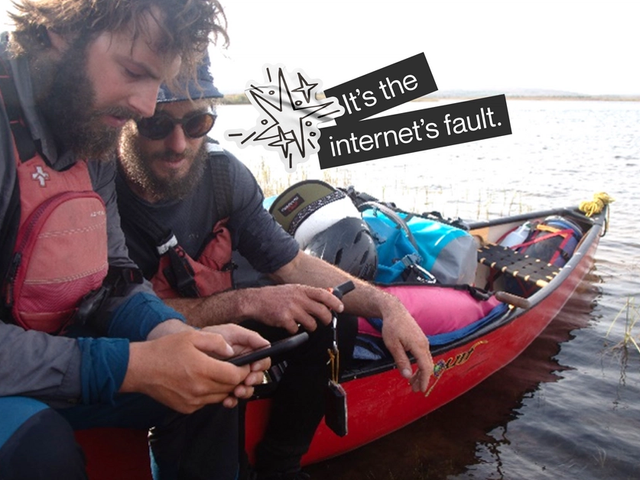
This is the second article in a series about how the internet has changed or is changing pretty much everything. Nicolas Roulx is a modern day adventurer (yeah they still exist) and knows better than most how the internet has changed our relationship with nature and adventure. This article—written by Nicolas—is a crazy fun read and we can’t wait for AKOR Expeditions to release their documentary next year. Okay, let's do this.
—
June 15, 1995 is a milestone in the history of Canadian exploration. Canadian and Russian explorers Richard Weber and Mikhail Malakhov completed a 121-day journey to the North Pole and returned alive, without any outside help. No sled dogs, no snowmobiles, no kites to pull them. Strictly the strength of their muscles and their mind to guide them in this Herculean challenge—which no explorer had dared to imagine before them. Perceived as impossible for a long time, this epic was never repeated. In his entire career as an endurance athlete, Weber managed to reach the North Pole seven times on skis and in autonomy. This was, and still is, more than anyone else in history. He became a world reference in polar expeditions.
Five days after returning from this historic expedition, Weber was interviewed on Radio-Canada to talk about his journey. The journalist Raymond Saint-Pierre asked him a predictable question:
— Throughout your experience, what have you learned and what makes you most proud?
— My greatest pride is that I was able to stay connected with 10,000 students around the world throughout the expedition. Every day we could send a 64-character message via satellite, which was then relayed over the Internet system," Weber said candidly.

As I was listening to the interview on YouTube a few years ago, Weber’s response—a long-time idol of mine—got me thinking. At that point in my life, I was busy organizing a large-scale Arctic expedition myself.
In 2021, my friend Guillaume Moreau and I completed the AKOR expedition, which consisted of crossing Canada in its entirety along the North-South axis, strictly by human power. A journey that no one had attempted before. Starting from Canada’s most northern island (Ellesmere), we progressed by ski, canoe and bicycle over 234 days to cross the 7600kms that separated us from the most southern point of Canada (in Ontario). Our journey, punctuated by blizzards, polar bears, animal attacks, broken equipment, serious injuries, fear and doubt, ranks as one of the longest wilderness expeditions in Canadian history; probably the longest since 1921. It was a daring journey that served up its share of the unexpected.
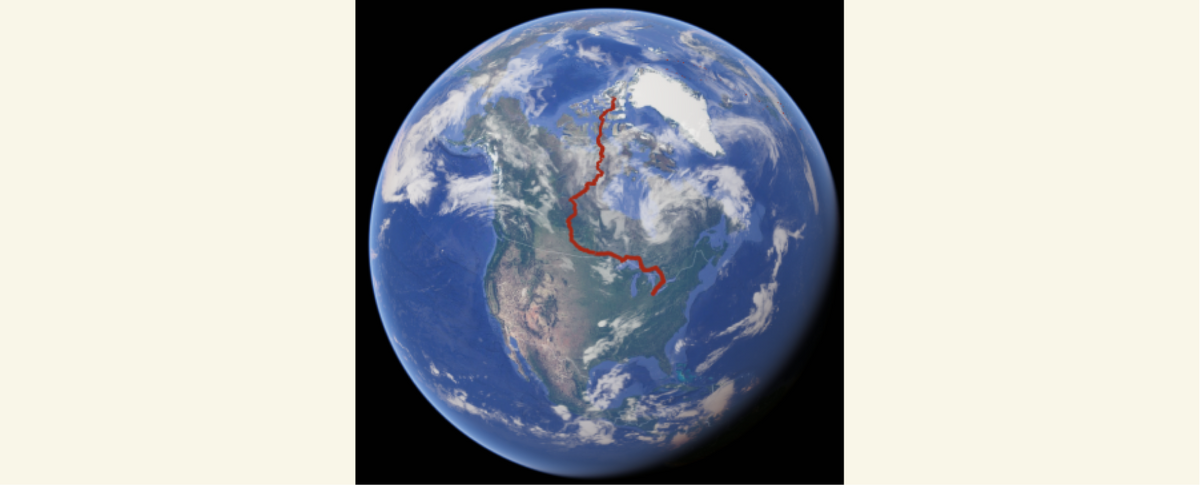
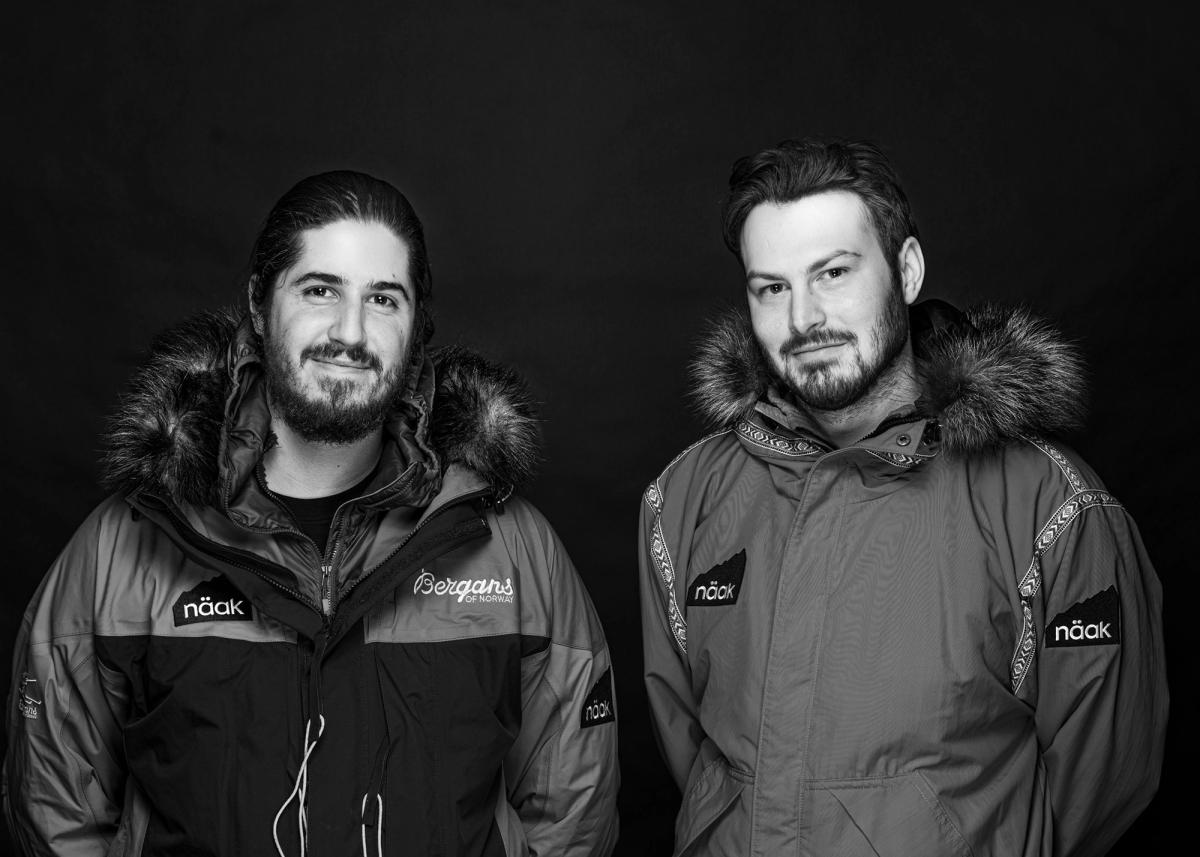
The technology of all possibilities.
There were twenty-six years between the monumental expedition of Richard Weber and our AKOR expedition. This quarter of a century has been marked by unprecedented technological advances: the democratization of the Internet, the flooding of cyberspace with a flow of data on a scale that the human brain can barely conceive, and the omnipresence of information technology in our daily lives. The world that saw the AKOR expedition unfold is drastically different from the one that saw Richard Weber return from the North Pole: we now find it difficult to conceive of our life without the Internet. Just as it has long seemed unthinkable to live without electricity.
Although the existence of the Internet was already having an impact on the exploration of Canada’s territory in 1995, the possibilities were still very limited... Weber could communicate the latest news of his journey with the outside world every day, but with just 64 characters, he had to choose which anecdote to tell! At the time, it was nevertheless a revolution.
To claim that the Internet—and more generally, all technologies—have changed modern exploration is a ridiculously obvious statement. You don't embark on an Arctic expedition today the way you did in 1900; they are two experiences that have nothing in common. Yes, the north-south crossing of Canada that we did could have been done in the last century... But it would have taken much longer than 234 days, and we probably would not have come back (mostly) unscathed. Technology was omnipresent in our 2021 adventure and saved us on several occasions.
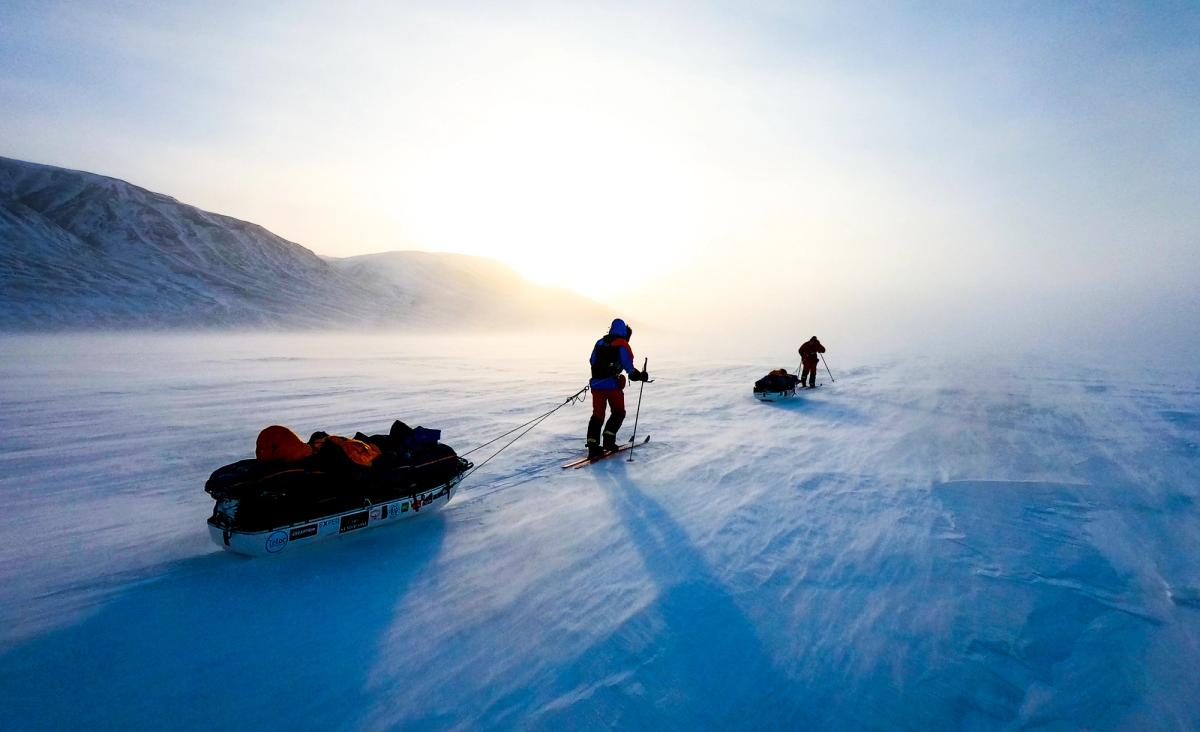
Literally every aspect of the preparation and realization of a large-scale expedition is facilitated by the Internet, starting with the analysis of the territory you plan to cross.
When NASA gets involved.
When you want to travel around the world by human power, the first step is to determine if it’s realistic. So we start with an analysis of the terrain from a distance, in the comfort of our living room, thanks to software like Google Earth, which allows us to see the existence or not of rivers and lakes, roads or large forests. Another software, this one created by NASA and named Worldview, lets us observe the territory in real time every day through constantly updated satellite images. This allows us to know if the lakes and rivers are frozen or not at a specific date of the year, or if there is still snow in the forest. Finally, the Canadian Ice Service, a federal agency, posts a map of Canadian waters online every week during the winter. This shows us the condition of the ice pack and whether it will be safe to ski on.
But you don't have to be on a multi-month expedition to see the benefits of the Internet in organizing our weekend hikes and adventures. Applications such as All Trails or I over lander allow everyone to share information on hiking trails and camping spots across Canada and around the world. The internet makes an abundance of information available that makes analyzing a route colossally easier than what Magellan and Samuel de Champlain experienced.
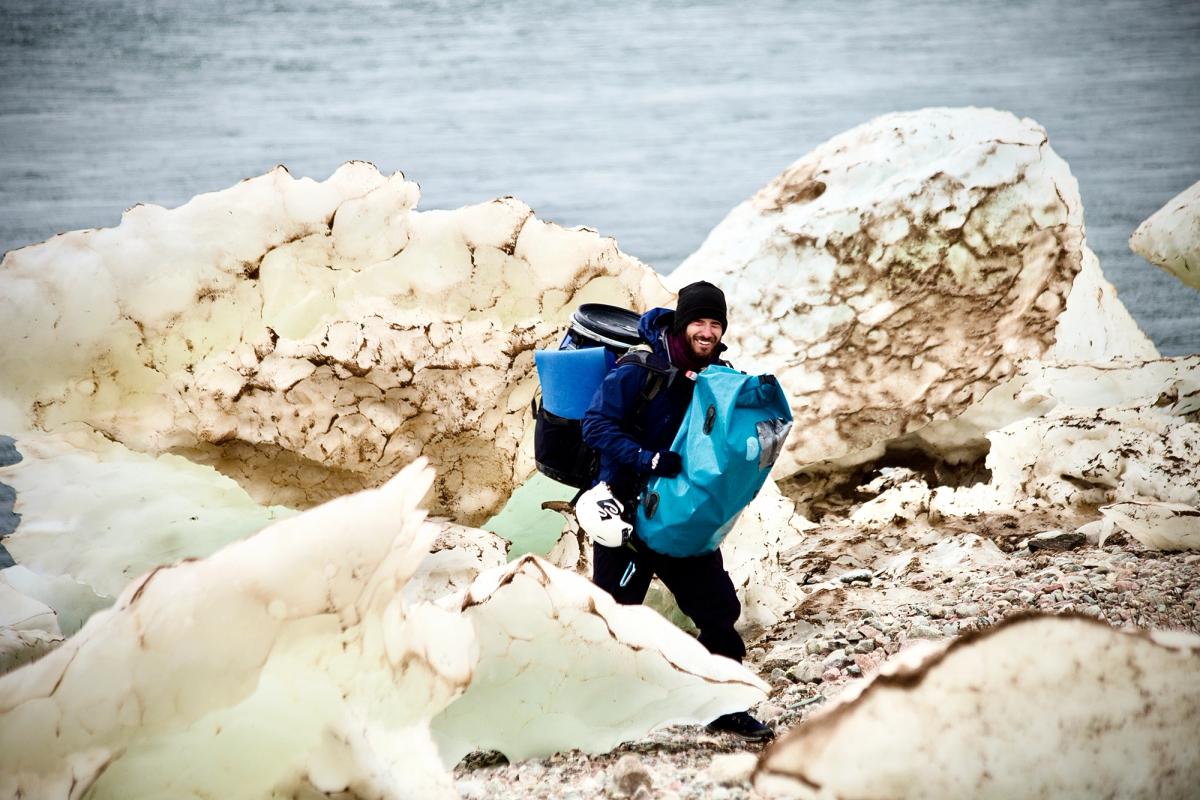
But the preparation of a long expedition does not stop once a route has been chosen. We have to organize the logistics of food and equipment supply points, emergency plans and local contacts who can help us with their knowledge of the territory. Not to mention the preparation of hundreds of kilos of food! Of course, all this work is made easier by the use of social networks. No need to meet in person, or even call each other to work as a team and divide up the tasks! If you want, you can simply keep up to date with the progress of the project in a continuous Messenger conversation.
Needless to say, the search for sponsors benefits greatly from intuitive email boxes and contact lists synchronized on the Cloud. Getting the word out about the project and organizing a promotional campaign to raise funds is a real charm once you master social networks! You don't need to be a communication professional to create captivating videos that start automatically on Facebook or raise funds on your website. All you need is a little time and interest! After all, YouTube is full of tutorials…
Constant links with the outside world.
In addition to its obvious benefits during the preparation of an expedition, it’s once you’re in the field, with your feet in the mud, that the Internet has the most appreciable impact. Decision making and risk analysis are greatly facilitated by communicating with our loved ones via satellite. Although direct access to the Internet via satellite is still very expensive and uncertain when you’re in a particularly remote area, you can still request crucial information from your support team in town, who will find the answers on the Internet and transfer them to you via satellite phone. We experienced this several times during our journey in 2021, notably when we were pulling our canoes across the ice in Nunavut, in the middle of melting lakes and rivers. We were supposed to be heading up the Back River (a spectacular Arctic river) when our Quebec City-based safety contact, who regularly consulted satellite images available on the Internet, informed us of a problem: several sections of this body of water were still frozen and would threaten to break up under us if we ventured out. The kind of situation where everything can change in a snap of the fingers.
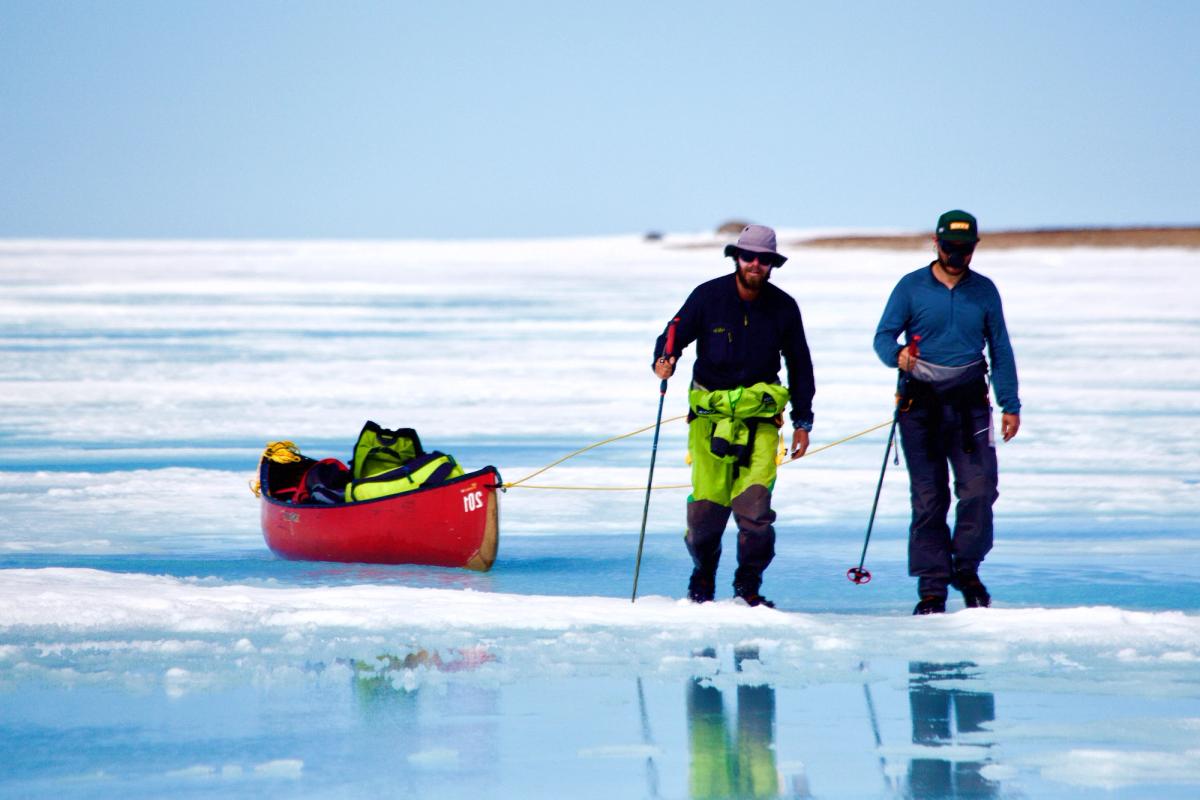
We therefore chose to bypass these risky river sections and opted for a less tumultuous chain of lakes and streams. This 2 week detour allowed us to go up a magnificent little river, a jewel of crystal clear water that very few people have ever seen, that cuts its way through a maze of rocky peninsulas that evoke a lunar landscape. It was majestic, but above all, we were safe. Thank you Internet.
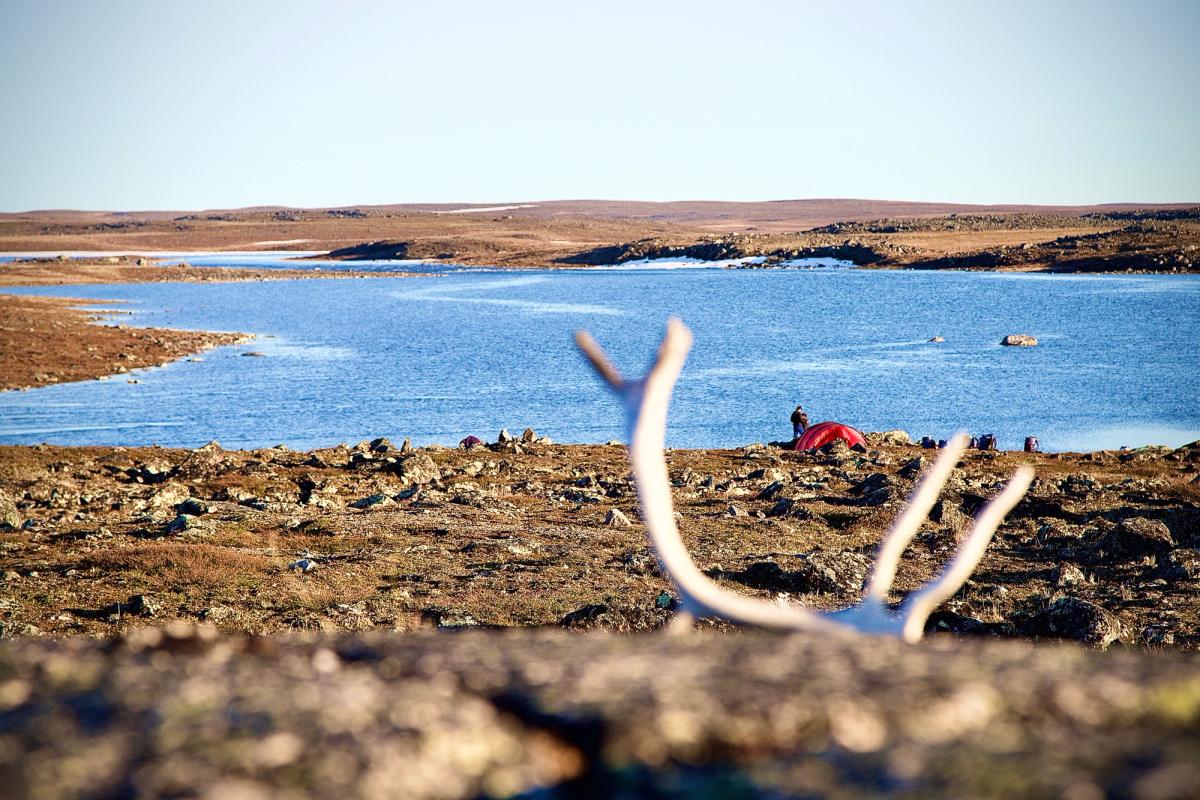
Communicating with our community of 10,000 followers on social networks was a breeze! We could send our daily location, which was then relayed on our website. We could even send a weekly email newsletter to the 200 people who had signed up to receive our news! The Internet allowed us to create and maintain a sense of belonging and support that completely changed the experience of the people who followed us virtually.
In short, the services rendered by the Internet in all that surrounds modern geographic exploration are countless. Technology in general has also transformed the way we stay safe, orient ourselves and move forward across the land, for example by using a GPS, an emergency beacon or a weather forecast receiver. In concrete terms, the Internet has revolutionized adventure.
Less doubt, more fun?
But besides the material considerations, the biggest impact of the Internet on an expedition is at the human level: our feelings and emotions. Since risk management is easier thanks to the above-mentioned tools, we can evolve in the territory with a greater peace of mind. Everything is more predictable, which reduces the number of problems to be solved, doubts and fear. We’re always just one click away from getting an answer to our questions. On a day-to-day basis, we live the adventure with a greater sense of security and a constant connection to society, something our predecessors in the pre-internet world did not experience.
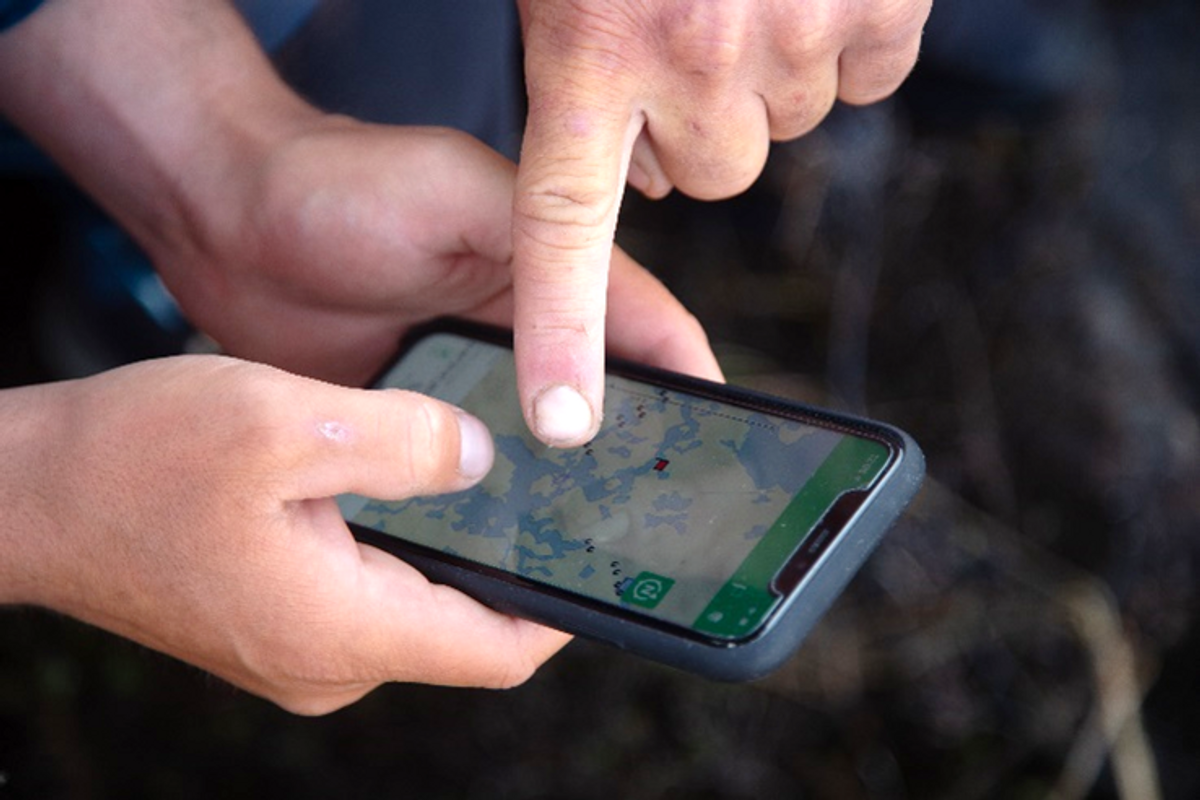
Although you always have to put one foot in front of the other when you want to move forward, the use of the Internet contributes to the same level of comfort as other technologies used in remote areas: modern clothing and high performance equipment. For the same challenge, expeditions are easier than before, and it’s also easier to share the results.
The striking arrival of the Web in the world of adventure in remote areas is the expression of transhumanism applied to the context of expeditions. Simply put: technologies can drastically increase human capabilities and push back the limits of what is considered as belonging to the realm of "possible".
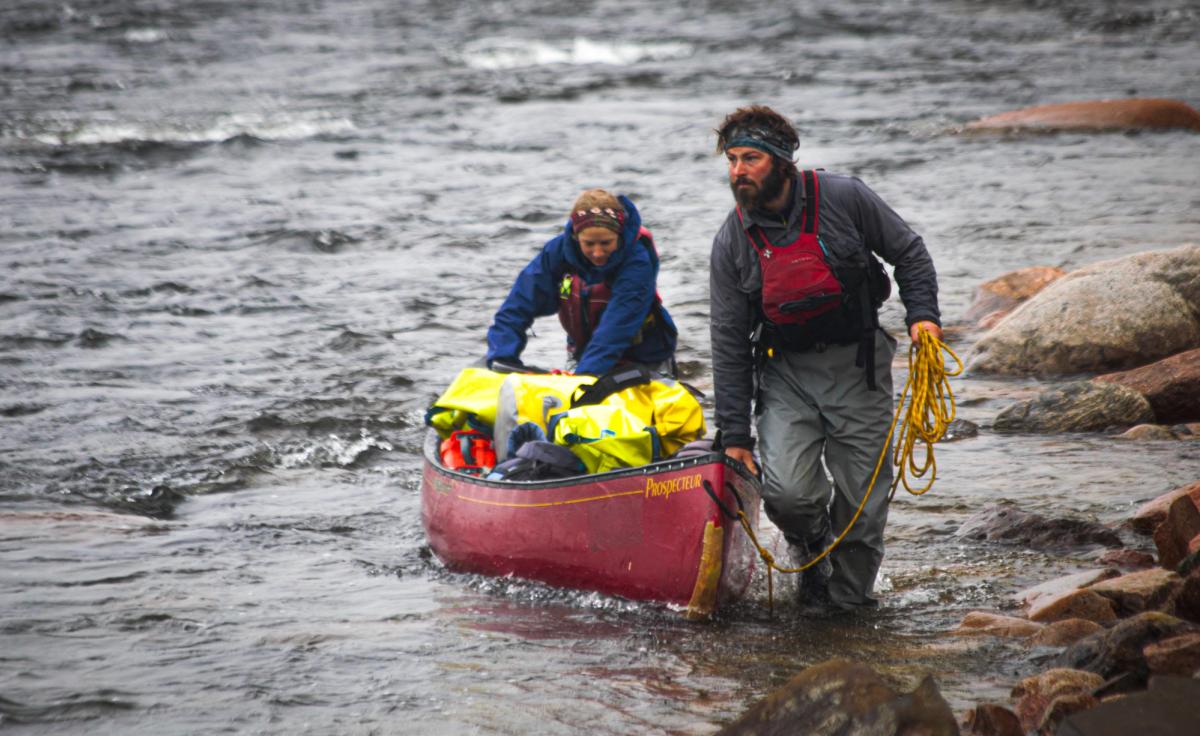
Today's Homo Sapiens, augmented by technology, are distorted from the way we traveled the land for thousands of years. The arrival of the Internet, about thirty years ago, profoundly transformed our relationship with nature and adventure. Although it has democratized access to the outdoors, making the experience more accessible and less risky, technological innovation in this field poses a fundamental reflection, which leads to a redefinition of the concepts of adventure and exploration. This reflection revolves around the following question: is adventure in its sanitized form, without unforeseen surprises, really what we are looking for?
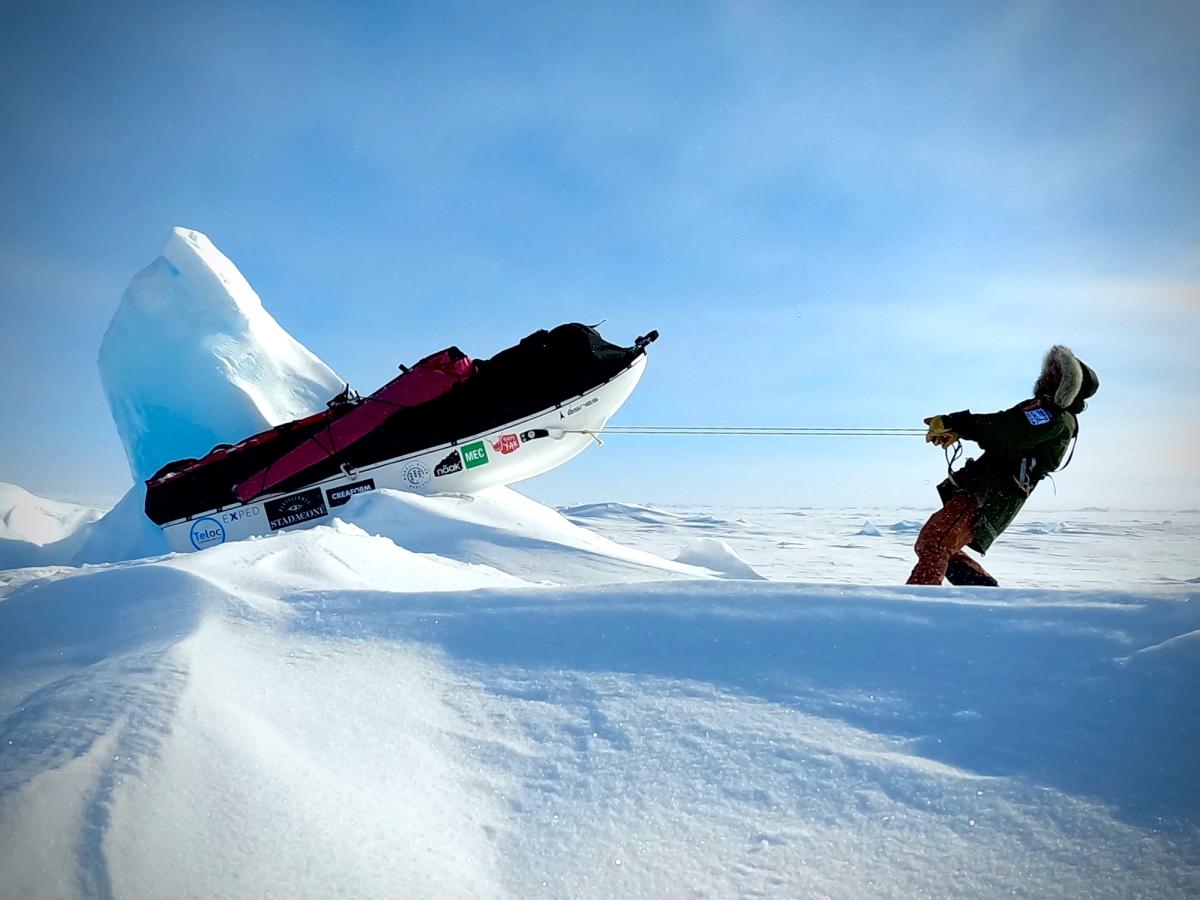
For better or worse.
I think that the thirst for adventure and discovery experienced by humans is universal. The thrill of discovering an unknown territory, of travelling, of seeing a country, of sharpening our senses in the middle of the wilderness, is a hard drug that has been in our genes for tens of thousands of years. Kicking that addiction will take longer than 30 years. This fantasy of treading across spectacular territories in remote areas—of surpassing our own limits as humans—is indeed a fantasy and has all the components of one: it’s a desire that is sometimes unconfessed or unconscious, but once fulfilled, it doesn't die out. It transforms itself to become more audacious. When we realize a fantasy, we push the limits of the next one. This explains why experienced travelers feel disillusioned when they return home and are left with a burning desire to go back. We can be satisfied by an expedition or a trip, but that satisfaction rarely lasts.
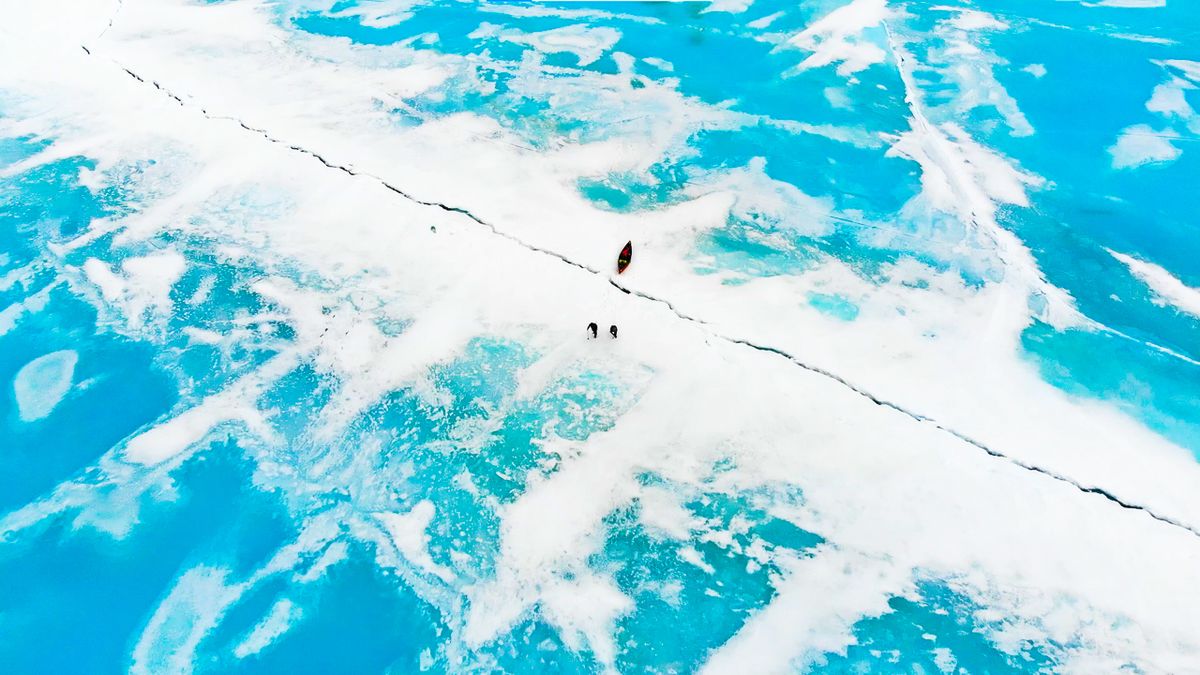
As the Internet makes these experiences more predictable, less dangerous and more comfortable, there is a kind of escalation. To recapture the adrenaline, euphoria, wonder, uncertainty and remoteness we had in the pre-internet era, we now have to go further. Do it faster, more impressively and more recklessly. It becomes the race to be the first climber to summit, the first to descend that river—it’s all about the speed. This leads to honourable and inspiring achievements, such as the recent speed record of climbing all 14 peaks over 8,000m by Nepalese Nirmal Purja (which was the subject of an excellent documentary on Netflix). But it also leads to disenchantment—like the hundreds of amateur climbers stuck on Everest, waiting in line to reach the summit.
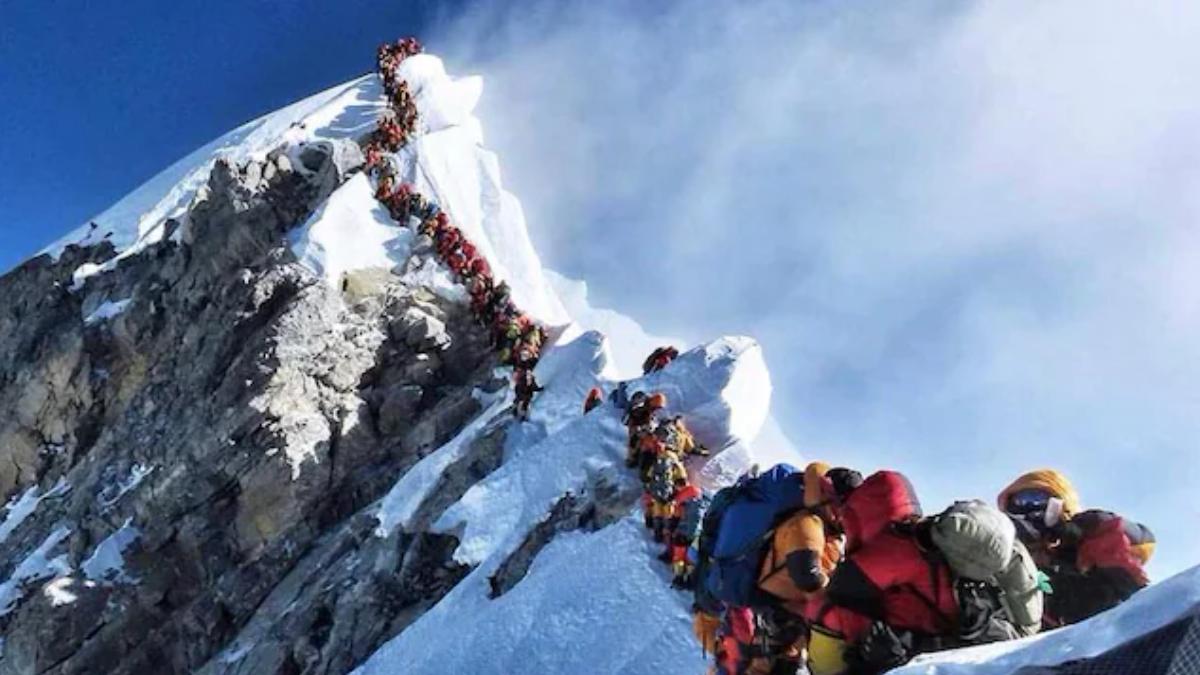
The geolocation programmed into Instagram posts and made public on the Internet also wreaks ecological havoc when thousands of people rush to that national park or that sunflower field to take a selfie in the same place as their fav influencer. To show that they too have exhilarating experiences, that they too see the country, that they too have an "adventurous" side.
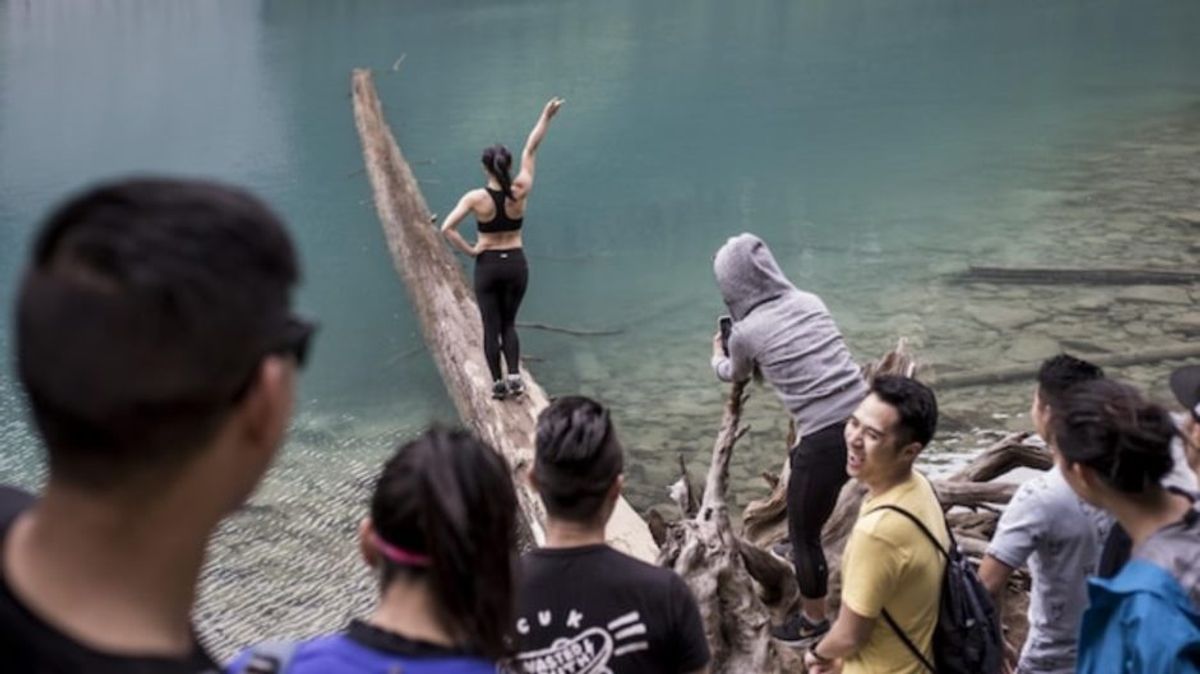
But fundamentally, adventure is defined by an experience where humans are supposed to evolve according to unpredictable events. This definition seems incompatible with the increasingly predictable nature of our activities in nature—the unforeseen, so sought after by explorers at heart, becomes rarer as technology digs its way into our expedition bags. If everything goes exactly as planned every time we put on our backpack or clip on our bike bags, we have to face the fact that adventure is not really an adventure anymore.
The Internet has democratized access to nature and the outdoors, but this comes at the cost of a radical transformation of our relationship with adventure. The depth and extent of these transformations belong to the future, but we are probably underestimating them. One thing is certain: opening your phone to test cell reception remains a choice, not an obligation! On the North Pole's ice floes, as in our national park of choice, there may not be a cellphone reception, but as we say, the connection is always excellent.
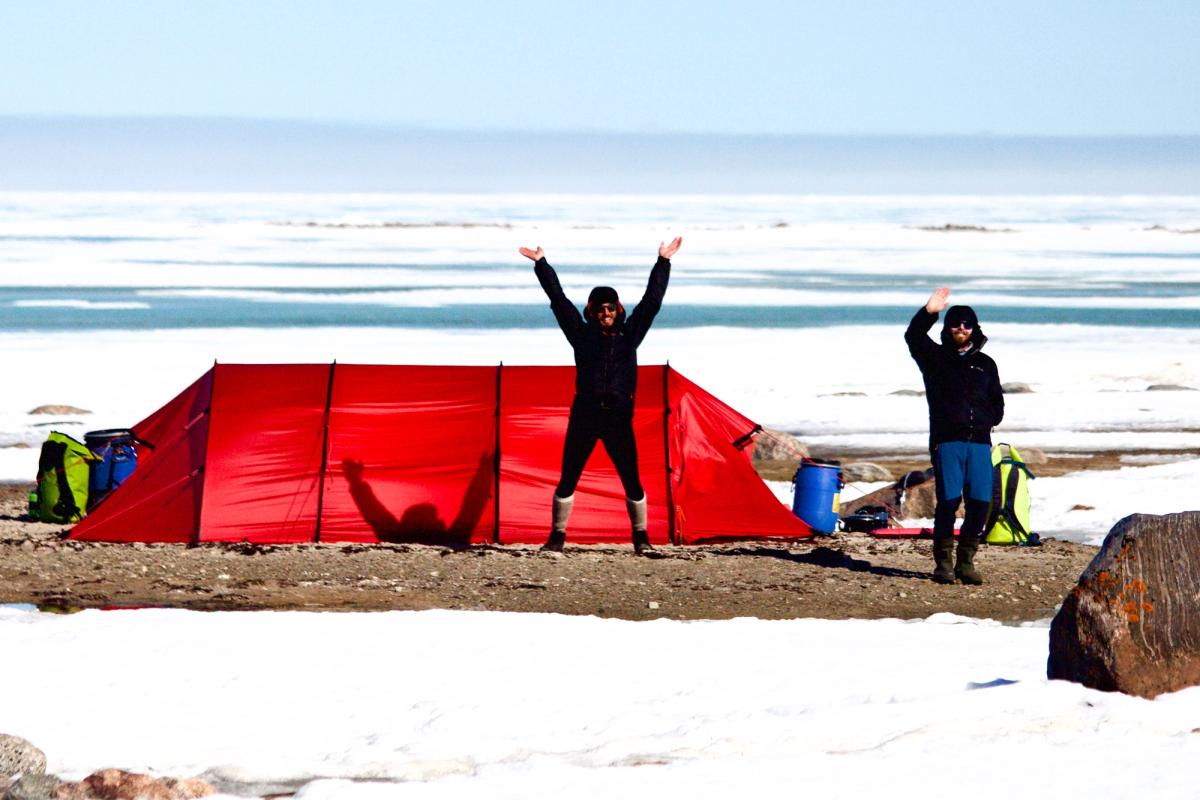
Okay, so this is oxio speaking and we just wanted to say thanks to Nicolas from AKOR Expeditions. We certainly would never even think of crossing Canada in anything but a car, plane or train and would therefore just never be able to write an article this baller. Keep an eye out for Nicolas’ short documentary about his crazy expedition. (Don’t worry, we’ll let you know when it drops.)







